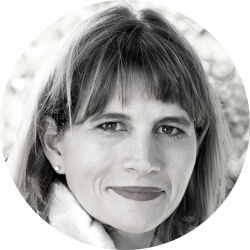The Market Corner: Examining Leadership's Impact on Market System Development Programing
Image

Senior market systems development (MSD) leaders create the culture and space for experimentation, adaptive management, and learning. These Chiefs of Party (CoP), Team Leaders, Deputy Chiefs of Party, etc. can play a critical bridge between technical and operational departments within a program. They also set the tone for prioritizing diversity and inclusion. Their influence — positive or negative — is undeniable, an insight that has emerged often in my previous interviews with (market) systems thinking practitioners.
This month, I speak with Mike Klassen, co-author of the BEAM Exchange's MSD competency framework and forthcoming expansion to include Team Leaders; Nina FitzSimons, CEO of PRISMA, a Department of Foreign Affairs and Trade-funded MSD program in Indonesia; and Bidowra Khan, Team Lead for Social Inclusion and Support Market Systems for the USAID Feed the Future Rice and Diversified Crops Activity in Bangladesh. Together, we explore the opportunities and responsibilities with which MSD leaders are charged.
Team Leaders set the tone
The Team Leader sets the tone for the program. What they are focused on; how they communicate with team members, partners, and donors; and even what they chose to yell about over the phone signals their priorities and values. In my coaching work with senior MSD leaders, I’ve seen that when that influence is deployed strategically, it can help refocus a MSD program that is struggling to effectively mainstream important cross-cutting considerations such as gender, youth, and social inclusion; climate adaptation; and/or Collaborating, Learning, and Adapting (CLA).
Influence priority areas
Nina recognizes her influence as a program leader and directs it towards, among other priority areas, closing the gender gap on PRISMA. She does it deliberately, integrates it everywhere, and makes it part of the expectations (this is advice she also gives to other senior leaders who want to create a more inclusive culture). PRISMA staff, for example, have specific gender, equality, and social inclusion (GESI)-related key performance indicators, their Senior Technical Team comprises a GESI expert, and their recruitment processes are designed to attract women and narrow the gender pay gap.
Signposting values
The tone on a program can also be established in more subtle ways, according to Mike. How a Team Leader facilitates a quarterly review or annual work planning process, for example, can signpost whether they value adaptive management and learning or not. For example, does the Team Leader use the exercise to invite all staff members, technical and operational, in a critical strategy review process where assumptions are revisited, probed, and updated based on evidence? Or is the review process one of many box-tick exercises to keep on pace with program impact and spending targets?
When the third CoP joined Bidowra’s Activity more than halfway through implementation, he focused his early efforts on increasing reflection and communication, formal and informal, among all team members. The CoP used a combination of overt influence and more subtle signaling. The purpose was to move the team towards more practical application of the CLA framework — something that was previously embraced more in name than in practice.
As a senior leader on the Activity, Bidowra supported this organizational shift by leading by example and encouraging her team of cross-cutting inclusion advisors to be more empathetic with colleagues. Seeing where their intervention managers were coming from and the obstacles they faced in designing and implementing partnership — walking a mile in their shoes so to speak — led to more collaboration across sectors and technical and operational teams.
Risk reinforcing a false narrative
That Team Leaders are hugely influential is not in debate. But a focus exclusively on Team Leaders risks reinforcing a false narrative that a single person can do everything. Both Mike and Nina highlighted the importance of senior leadership teams in filling out the range of competencies required for a successful MSD program.
“Too much kudos is given to a team leader. [...] The reality is, it is a team effort.” - Nina FitzSimons
Nina, for example, comes from an operations background and knows how to keep the program humming along, but says she gives rein to her two Chief Technical Officers who provide recommendations for the technical direction of the program.
From Mike’s perspective, the “Team Leader as General Manager supported by technical experts model” is a promising development. He finds that the development sector often places too much emphasis on similar prior experience and technical skills for Team Leaders over other important competencies, such as adaptive management, decision-making, people management, and communications — among others. This is an issue that has emerged in my own research on the topic and is impacting the industry's ability to propose more diverse senior leaders.
In the next installment of the Market Corner, we’ll hear more from Mike Klassen, Nina FitzSimons, and Bidowra Khan about their advice for aspiring senior leaders.
Have insights or recommendations of your own? Post via your Marketlinks account, or send them to us at info@marketlinks.org, and we will include these in the next installment of the blog.
About
Image

Mike Klassen
Mike Klassen is an independent consultant and market systems specialist at the BEAM Exchange with over 10 years of experience building capacity in MSD projects and the organizations which implement them. He has led numerous sector-wide learning efforts focused on MSD organizational capacities, such as the BEAM Exchange’s 2020 MSD Procurement Clinics. He is currently the facilitator for a task team of the DCED’s MSD Working Group that includes donors, implementers, and consultants to articulate the core competencies of MSD Team Leaders, with a focus on criteria for evaluation, future pipelines, and sector-wide leadership development opportunities. The findings of this work will be communicated widely throughout 2022.
Image

Nina FitzSimmons
Nina FitzSimons has more than 20 years of experience managing development programs, primarily in southeast Asia. With a wide skill set, Nina has experience in capacity development, strategic communications, GESI, grants management, and, more recently, MSD. For the past eight years, Nina has held senior management roles in MSD programs and is currently CEO of one of the largest MSD programs in the region. Nina enjoys working in diverse environments and developing strong and cohesive teams. Nina is a keen mountain biker and a closet artist.
Image

Bidowra Khan
Bidowra Khan has over 13 years of experience in MSD ecosystems, specializing in inclusive agricultural market systems, financial and gender inclusion, and enhancing resilience through food security for rural marginalized farmers and entrepreneurs. Bidowra has in-depth experience on analyzing, working on, and leading sustainable, inclusive, and systemic private sector-led solutions in different agricultural market systems and in interconnected markets, such as financial inclusion, and in cross-cutting themes such as gender integration. Bidowra previously worked for UK Aid’s flagship MSD project in Bangladesh, where she developed and applied tools to monitor and measure economic empowerment of women achieved in the agriculture sector, such as Women’s Economic Empowerment Index. Bidowra wishes to pursue working in this challenging yet rewarding environment to ensure effective inclusion in market system frameworks. Bidowra is Bangladeshi-born, and she is fluent in English and Bengali.
Image

Holly Lard Krueger
Holly Lard Krueger is a managing partner at the Canopy Lab and a market systems development expert with over 15 years of experience providing technical advice in the field of private sector development/engagement with a specific focus on applying digital technology, gender equality and social inclusion (GESI), market systems, and Value for Money (VfM) principles to project and strategy design for agriculture, humanitarian aid, business enabling environment reform, trade, urban development, and women’s economic empowerment programs.
Holly is a proven strategic leader, having managed large market systems projects with diverse teams. She is also skilled as a strategic advisor, coach, and trainer in the practical application of systems approaches to market development, and she is currently an advisor to USAID’s Bureau for Humanitarian Assistance, a World Bank-funded program in West Africa (TFWA), a DFAT-funded program in Indonesia (PRISMA), and a FCDO-funded program in the Democratic Republic of the Congo (Essor). Holly is based in Morocco and has worked in over 15 countries in Africa, Asia, and the Middle East and has implemented projects and conducted evaluations for leading donors, including the Bill & Melinda Gates Foundation, DFAT, IFC, FCDO, USAID, and the World Bank. She has an M.A. from Johns Hopkins School of Advanced International Studies and a B.A. from Vanderbilt University.


